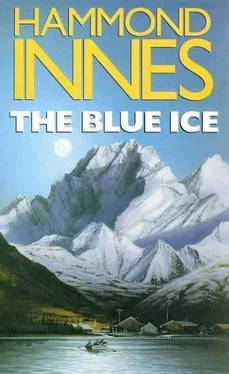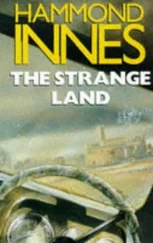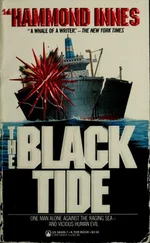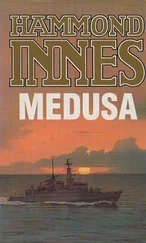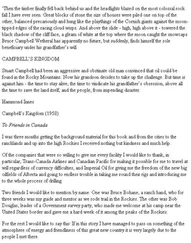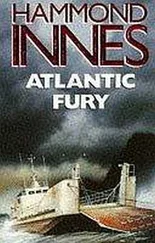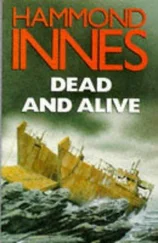Hammond Innes - Blue Ice
Здесь есть возможность читать онлайн «Hammond Innes - Blue Ice» весь текст электронной книги совершенно бесплатно (целиком полную версию без сокращений). В некоторых случаях можно слушать аудио, скачать через торрент в формате fb2 и присутствует краткое содержание. Жанр: Прочие приключения, на английском языке. Описание произведения, (предисловие) а так же отзывы посетителей доступны на портале библиотеки ЛибКат.
- Название:Blue Ice
- Автор:
- Жанр:
- Год:неизвестен
- ISBN:нет данных
- Рейтинг книги:4 / 5. Голосов: 1
-
Избранное:Добавить в избранное
- Отзывы:
-
Ваша оценка:
- 80
- 1
- 2
- 3
- 4
- 5
Blue Ice: краткое содержание, описание и аннотация
Предлагаем к чтению аннотацию, описание, краткое содержание или предисловие (зависит от того, что написал сам автор книги «Blue Ice»). Если вы не нашли необходимую информацию о книге — напишите в комментариях, мы постараемся отыскать её.
Blue Ice — читать онлайн бесплатно полную книгу (весь текст) целиком
Ниже представлен текст книги, разбитый по страницам. Система сохранения места последней прочитанной страницы, позволяет с удобством читать онлайн бесплатно книгу «Blue Ice», без необходимости каждый раз заново искать на чём Вы остановились. Поставьте закладку, и сможете в любой момент перейти на страницу, на которой закончили чтение.
Интервал:
Закладка:
Hammond Innes
Blue Ice
CHAPTER ONE
A lump of rock stands on my desk. It is a dull, grey lump of metallic rock no bigger than my fist, and it rests on the blueprints of a great new enterprise. Beside it is a newspaper cutting with the picture of a grave and a little Norwegian church in the background. The blueprints belong to the future. The lump of rock and the newspaper cutting belong to the past. Past and future are a part of George Farnell, for his story is like a fine thread binding together the events which made this project possible. What he dreamed is taking shape out there by the frozen lake. If I switch off my table lamp and pull back the curtains, I can see the half-constructed buildings humped under their canopy of snow. Beyond them, towering white in the cold night, is the Jokulen. And on the glacial flank of the mountain, the Blaaisen — the Blue Ice — catches the moonlight in its icy jaws and grins. It is a wild and terrible place. And yet just below my window the lines of the railway that came through here in 1908 gleam like twin swords of achievement. Put back the curtain, switch on the light, and all is comfort and warmth again, proving that man’s will to conquer is invincible. The nights are long now, and I have time to write of the events that led up to this new enterprise and of as much of George Farnell’s story as we have been able to piece together. For this is his monument of achievement. And I want the world to know that it is his.
I came into it because of my knowledge of metals. But I wasn’t thinking about metals at the time. I was thinking about stores and storm sails and diesel oil and all the other paraphernalia of sailing. I was doing the thing I’d always wanted to do. I was going foreign in my own ship.
I can remember that morning so clearly. It was early April and a cold wind whipped the muddy water of the Thames into little angry whitecaps. Across the river the stone battlements of the Tower stood out very white against a sky of driven scud. Above us Tower Bridge rumbled with heavy dock traffic. Little groups of city workers crowded the parapet, gazing down at us as we bent on a new mainsail. The air was full of the thick smell of malt. The gulls wheeled and screamed incessantly. And all about us was the urgent movement of ships.
It’s not easy to describe the feeling of exhilaration and impatience that possessed me. The gulls seemed screaming at us to hurry. There was an urgent note in the wind’s rattling of the rigging and in the chatter of the wavelets against our newly painted hull. The tugs hooted impatiently. The long search for the right boat, the months of stripping and refitting, the days spent scrounging stores — all now seemed condensed into this one day. This was the period of waiting. Tommorow, before it was properly light, we should be slipping down-river with the outgoing tide — outward bound for the Mediterranean.
A month ago this moment had seemed no more than a dream. Shortages of materials and labour, export targets, foreign markets, man-management — that had been my life. Production manager of B.M. amp; I. — Base Metals and Industries — that was the job I’d been doing. I’d climbed to that big office in the concrete block outside Birmingham by drive and energy, and because I’d discovered and developed a nickel mine in Canada. All through the war I’d held that job. And I’d enjoyed it. Not because I like war. But because I wielded an industrial weapon and used the last ounce of energy that was in it to get guns and tanks rolling across the deserts of Africa and the fields of Normandy. But now I was through with all that. You’ll say at thirty-six I’d no business to get out, the country being in the mess it was then. Well, I’m half Canadian and a scrapper by nature. But I like to know what I’m fighting. You can’t fight controls and restrictions. The war gave free reign to my initiative. The peace cribbed it.
Dick Everard’s an example of what I mean. He represents the best that Britain produces — tall, freckled, with a shock of fair hair and an honesty and strength of purpose that is a legacy of naval discipline. At twenty he was a naval rating. At twenty-four he was a lieutenant in charge of a corvette, with men and equipment worth the better part of a million under his command and untold responsibility. And now, at twenty-eight, he’s regarded as of no more value than a machine-minder. All that training thrown away! The other two members of the crew, Wilson and Carter, are different. They’re paid yacht hands. It’s their job. But Dick has no job. He’s coming for the hell of it — because he’s got nothing better to do and wants to look over the possibilities of other countries.
As I leaned on the boom, watching his deft fingers securing the peak of the sail to the main gaff, I couldn’t help thinking what a loss men like he were to the country. So many were getting out. His eyes met mine and he grinned. ‘Okay, Bill,’ he said. ‘Hoist away.’
With Carter on the peak halyard and myself on the throat we ran the mainsail up. The canvas was snowy white against the dark background of the warehouses. It slatted back and forth in the wind. We manned the peak and throat purchases. ‘She’s going to set nicely,’ Dick said.
I looked along the deck. Everything was neatly coiled down. The deck planking was scrubbed white. Brass-work gleamed in the dull light. She was a lovely boat. She was a gaff-rigged ketch of fifty tons and she’d been built in the days when ships were expected to go anywhere. I’d had her stripped out inside and refitted to my own design. A new main mast had been stepped. The rigging was all new, so were the sails and I’d had her auxiliary replaced by a big ex-naval engine. For the first time since the war ended I felt the world at my feet. I’d stores and fuel and a crew — there was no place in the world Diviner wouldn’t take me.
Dick sensed my thoughts. ‘With a fair wind we’ll be in the sun in a week’s time,’ he said, squinting up at the grey clouds scudding past our burgee.
I looked up at the envious faces lining Tower Bridge. ‘Yes,’ I said. ‘Algiers, Naples, the Piraeus, Port Said …’
And then I saw Sir Clinton Mann coming across the wharf, Sir Clinton is chairman of B.M. amp; I. — a tall man with stooping shoulders and an abrupt manner. He’d come into the business by way of the City. He represented money and statistics. He was as remote as a cabinet minister from the sweat and toil of production. He looked strangely incongruous in his City hat as he climbed down on to the deck.
‘Good-morning, Sir Clinton,’ I said, wondering why he had come. His eyes regarded me coldly as I went forward to meet him. I was conscious of my dirty jersey and corduroys. I’d never met him anywhere outside of a board-room. ‘Would you care to look over the ship?’ I asked.
‘No,’ he said. ‘I’m here on business, Gansert.’ I took him down to the saloon. ‘When do you sail?’ he asked.
‘Tommorow,’ I said. ‘On the morning tide.’
‘For the Mediterranean?’
I nodded.
‘I want you to change your plans, Gansert,’ he said. ‘I want you to go to Norway instead.’
‘Why?’ I asked, puzzled at his suggestions. And then, quickly, in case he should take that as an indication that I would: ‘I’m sorry, Sir Clinton. But I’m leaving tomorrow for-’
He held up his hand. ‘Listen to me first, Gansert,’ he said. ‘You’re no longer connected with B.M. amp; I. — I know that. But you can’t give eight years of your life to a concern without something of it sticking to you. Those thorite alloys, for instance. You started that. They were developed as a result of your efforts. And if we could get into full production-’
Читать дальшеИнтервал:
Закладка:
Похожие книги на «Blue Ice»
Представляем Вашему вниманию похожие книги на «Blue Ice» списком для выбора. Мы отобрали схожую по названию и смыслу литературу в надежде предоставить читателям больше вариантов отыскать новые, интересные, ещё непрочитанные произведения.
Обсуждение, отзывы о книге «Blue Ice» и просто собственные мнения читателей. Оставьте ваши комментарии, напишите, что Вы думаете о произведении, его смысле или главных героях. Укажите что конкретно понравилось, а что нет, и почему Вы так считаете.
